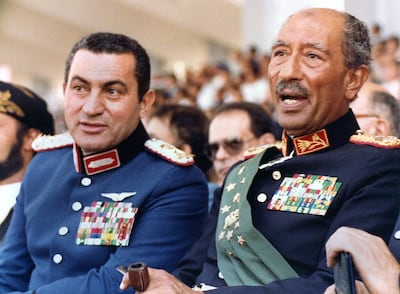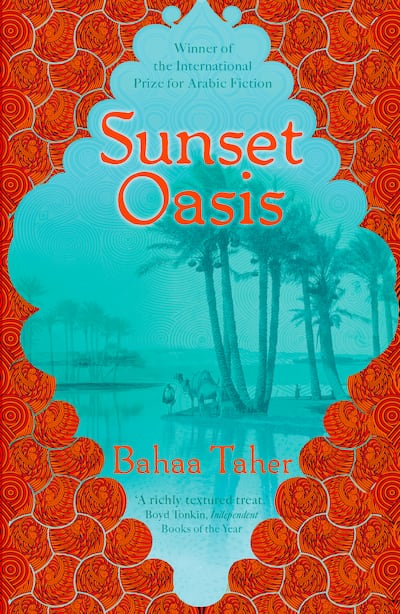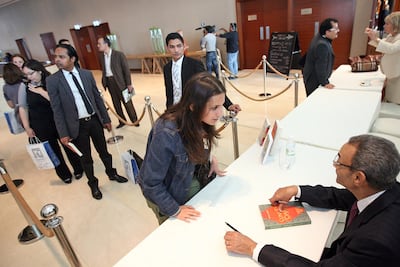Egyptian writer Bahaa Taher has died at 87, following a lengthy illness.
Over his career, Taher published 17 books, including Sunset Oasis, which won the inaugural International Prize for Arabic Fiction in 2008, and several plays. The award, which is funded by the Department of Culture and Tourism — Abu Dhabi, is commonly known as the Arabic Booker.
The Egyptian Writers' Union paid tribute to Taher saying he had “enriched the Arab Library with great literary and novel works”.
Born in Giza, Greater Cairo, in 1935, Taher was the youngest of eight children. Although illiterate, his mother used to inspire him with stories about families and intrigue set in her birthplace, near Luxor in Upper Egypt — which would later feature in some of his most prominent work. Taher was 17 when his father, an Arabic teacher, died.
After graduating from university, Taher began his career as a translator for the government, before helping to launch Radio Cairo’s cultural programme in 1957, producing radio dramas.
Throughout the 1960s he was a member of Egypt’s left-wing, avant-garde literary circles and a regular contributor to the Galerie 68 magazine, which published experimental and political pieces deemed too controversial for mainstream publication.
An early supporter of Gamal Abdel Nasser, who Taher believed developed Egypt into a more self-sufficient, independent and progressive state while president, he was much more critical of Anwar Sadat’s rule.

In an interview with Saudi magazine Majalla, he said: “Back then, Egypt’s Minister of Information followed a very clear rule ‘those who are not with us, are against us’, and apparently I was not considered to be with them.
“The situation was very bad at that time. During Gamal Abdel Nasser, the opposition was sent to prison; during Anwar Sadat we were left to starve and obliged to come back on our knees.”
Having published his first collection in 1972, he was fired from his broadcasting three years later — and banned from writing and publishing in Egypt, over his leftist views and writings. Sadat accused him of being at the centre of a "red cell" at the heart of Egyptian Radio.
Struggling for work, he left Egypt and began working as an English, French and Arabic translator for Unesco in Geneva, continuing to write short stories and novels.
In an earlier interview with The National, he said: "For two years, I wasn't able to write. Partly because I was busy, but also because man is like a plant. He needs his own earth and blossoms in it. If you take him and transfer him to different soil, either the adaptation succeeds — which needs a lot of work — or it doesn't, but in both cases, the plant will be different."
Egypt lifted the ban on Taher's work in 1983, allowing the works he produced in Geneva to trickle through — Al Hob fil Manfa (Love in Exile) — which tackles exile, disillusionment, and the redemptive power of love; and Qalat Duha (As Doha Said), exploring the hopes and disappointments of the early Nasserist era, among others.
After his return to Egypt in the 1990s, more of Taher’s books have been published and translated into multiple languages. One of his best-known works, Khalti Safiyya wal Dier (My Aunt Safiyya and the Monastery) was published in 1991 and translated into English five years later.

Written at a time of heightened tensions between the Muslims and Copts of Upper Egypt, it presented a harmonious relationship between Muslim and Coptic characters, angering some in both communities. However, it was praised for its accurate depiction of Upper Egypt, which Taher had only sporadically visited.
In 2000, the novel was awarded the Italian Guiseppe Acerbi prize — two years after Taher received Egypt’s highest literary award, the State Award of Merit in Literature. Taher’s sixth novel, Sunset Oasis, published in 2007, is centred on a disgraced Egyptian government official, who is posted to the desert oasis of Siwa by his British superiors Siwa, for his involvement in the failed Urabi revolt of 1882. Spanning several Egyptian epochs, the book won the inaugural Arabic Booker in 2008.
Exploring the dynamics of power, Taher has Alexander the Great state: “I learnt that fear, not wisdom, is the basis of rule. I learnt that one must make the common people live in constant fear of punishment and torment on Earth and in Heaven so that they may know obedience and righteousness.”

In 2009, The National interviewed Taher for the UK launch of Sunset Oasis. At the time, he had two children from a previous marriage and was living with his Greek-Slovenian wife Stefka, who is a Russian interpreter, in Zamalek, an island on the Nile. He called the Arabic Booker prize win "a very welcome surprise".
Four years later, Taher resigned from Egypt's State Council of Culture in protest to the firings and resignations of several leading cultural figures under Mohamed Morsi's rule.
Even in his older years, Taher remained committed to the same principles he always had. "I am still against the same things I was against when I was young: social and political injustice, especially against women or people of different origins or ethnicities. What's different is that the hope I had at one time no longer exists. Hopefully, things will change — but not, I think, very quickly."
Scroll through more images of famous people we've lost in 2022 below








































































































